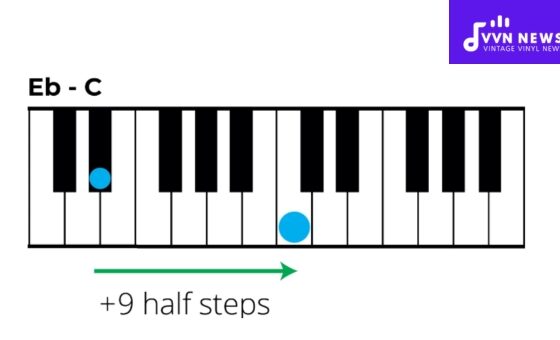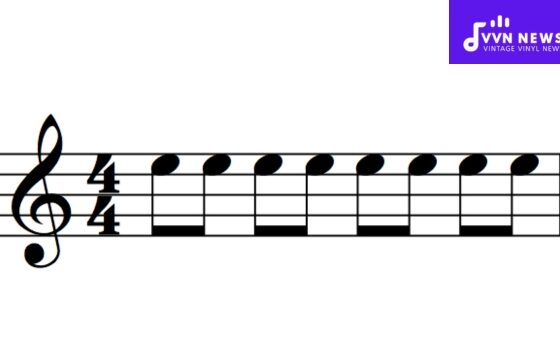As a music teacher, one of the most common questions I receive from aspiring educators is, How much should you work as a music teacher?
It’s an important question to consider, as finding the right balance between work and personal life is crucial for any profession.
I will delve into this topic and provide insights into what you can expect in terms of workload, time commitments, and balancing your musical career with your personal life.
When it comes to working as a music teacher, it’s important to recognize that the amount of time you dedicate to your profession may vary depending on several factors.
These factors include whether a school employs you or if you work independently, the number of students you have, and whether teaching music is your sole source of income or a part-time endeavor.
The level at which you teach – elementary school, middle school, high school, or college – can also impact the amount of work required.
Now let’s dive into exploring how much you should work as a music teacher and what considerations you should keep in mind.
How Much Should You Work As A Music Teacher?

Finding the right balance between work and personal life is important for any profession, including music teaching.
The amount of time you dedicate to your profession as a music teacher may vary depending on factors such as whether you work independently or are employed by a school, the number of students you have, and the level at which you teach.
Full-Time vs Part-Time Schedule
If you work as a full-time music teacher, you can expect to have a more demanding schedule.
This typically involves teaching multiple classes or lessons throughout the day, preparing lesson plans and materials, attending staff meetings, and possibly participating in extracurricular activities or performances.
On the other hand, if you work part-time as a music teacher, your schedule may be more flexible and tailored to your availability.
Considerations for Workload
The workload of a music teacher can also depend on the number of students they have.
If you have a smaller number of students, you may spend less time in classroom instruction but more time on individualized lessons and assessments.
Conversely, a larger number of students may require more time for grading papers and providing feedback.
Balancing Work and Personal Musicianship
As a music teacher, it’s important to continue nurturing your own musical abilities outside of teaching.
Whether it’s practicing an instrument or participating in musical performances, maintaining personal musicianship can enhance your teaching skills and overall job satisfaction.
Also Read: How To Teach Breath Control? [Easy Exercises For Singers]
Effective Time Management
To effectively manage your workload as a music teacher, prioritize your tasks based on importance and deadlines.
Create daily or weekly schedules that allocate specific times for lesson planning, grading papers, meeting with students, attending meetings or workshops, and engaging in personal musical activities.
Signs of Overworking
It’s crucial to be aware of signs of overworking in the music teaching profession.
Burnout can negatively impact both your professional performance and personal well-being.
Signs of overworking may include exhaustion, lack of motivation, decreased job satisfaction, and difficulty maintaining work-life balance.
If you experience these symptoms, it may be necessary to reevaluate your workload and make adjustments to ensure your overall well-being.
Finding the right balance and knowing how much to work as a music teacher is a personal decision.
It’s important to consider your own needs, goals, and limitations when determining your ideal workload in order to thrive both personally and professionally.
How Does Part-Time vs Full-Time Affect a Music Teacher’s Schedule?
Deciding whether to work as a part-time or full-time music teacher can have a significant impact on your schedule and the amount of time you dedicate to your profession.
Here are some key differences to consider:
Part-Time Music Teaching:
- Flexible Hours: As a part-time music teacher, you have the advantage of flexibility when it comes to scheduling your teaching sessions. This is particularly beneficial if you have other personal commitments or multiple jobs.
- Reduced Workload: Part-time teaching typically involves fewer students and fewer classes per week compared to full-time teaching. This means you may spend less time planning lessons, grading assignments, and attending meetings.
- Limited Income: However, it’s important to note that working part-time may result in a lower income compared to full-time teaching. This should be taken into account when considering your financial goals and responsibilities.
Full-Time Music Teaching:
- Regular Schedule: Full-time music teachers usually have set working hours that align with the academic calendar of their institution. This can provide structure and routine to both your professional and personal life.
- Increased Student Load: With full-time teaching comes more students, more classes, and potentially more responsibilities such as directing ensembles or coordinating performances. Be prepared for a higher workload in terms of lesson planning, grading, and administrative tasks.
- Job Security: Full-time positions often come with job security benefits such as health insurance, retirement plans, and paid leave. These factors contribute to long-term stability in your career as a music teacher.
It is important to consider how part-time or full-time work will fit into your overall lifestyle aspirations and financial needs when choosing between the two options.
Also Read: What Does A Music Librarian Do? [Career, Education & Salary]
What Are the Benefits of Balancing Teaching and Personal Musicianship?

As a music teacher, finding a balance between teaching and continuing to pursue your own musical career is essential.
Balancing these two aspects of your life can have several benefits for both you and your students.
Here are some key advantages of striking a balance between teaching and personal musicianship:
- Personal Growth: Engaging in your own musical practice and performances allows you to continue growing as a musician. It provides an opportunity to explore new techniques, expand your repertoire, and refine your skills. This personal growth translates into better teaching as you bring fresh insights and experiences into the classroom.
- Inspiration for Students: When your students see that you are actively involved in music beyond teaching, it can inspire them to pursue their own musical goals with enthusiasm. Your passion for music becomes contagious, motivating students to push themselves further in their musical journey.
- Enhanced Teaching Skills: Maintaining an active presence in the music scene keeps you up to date with current trends, styles, and pedagogical approaches. This knowledge can be translated into more effective teaching methodologies, ensuring that you provide the best possible education for your students.
- Professional Networking: Balancing teaching with personal musicianship exposes you to a wider network of musicians, fellow teachers, and industry professionals. These connections can lead to collaboration opportunities, performance invitations, or even career advancements.
- Emotional Well-being: Pursuing your own musical passions alongside teaching helps prevent burnout by providing outlets for self-expression and personal fulfillment. It acts as a reminder of why you became a musician in the first place and enables you to maintain a healthy work-life balance.
Remember that finding a balance between teaching and personal musicianship is not just beneficial for yourself but also for the growth and development of your students.
By being an active participant in the music community while shaping young minds through teaching, you create a powerful impact that can inspire the next generation of musicians.
Also Read: What Does A Music Therapist Do? [Skills, Career And Salary]
How Can Music Teachers Effectively Manage Their Time?

As a music teacher, managing your time effectively is crucial to ensure a successful and balanced career.
Here are some strategies and tips to help you make the most of your valuable time:
- Create a Schedule: Start by creating a weekly or monthly schedule that outlines your teaching hours, rehearsal times, and personal commitments. Use a calendar or planner to keep track of your responsibilities and allocate specific time slots for each task.
- Prioritize Tasks: Identify your most important tasks and prioritize them accordingly. Determine which tasks require immediate attention and which can be postponed. Focus on completing high-priority items first to avoid feeling overwhelmed.
- Set Realistic Goals: Set achievable goals for each day, week, or month. Break down larger tasks into smaller, more manageable steps. By setting realistic goals, you can maintain a sense of accomplishment while avoiding burnout.
- Delegate Responsibilities: If you have the opportunity, delegate certain responsibilities to others when possible. This could include hiring an assistant or assigning specific tasks to students or colleagues who can provide support.
- Eliminate Time Wasters: Identify activities that are wasting your time and eliminate them from your routine as much as possible. This could include excessive social media use, unnecessary meetings, or unproductive habits.
- Batch Similar Activities: Grouping similar activities together can help streamline your workflow and save time. For example, schedule a block of time for grading papers or lesson planning rather than spreading it throughout the day.
- Take Breaks: It’s important to take regular breaks throughout the day to stay refreshed and avoid mental fatigue. Incorporate short breaks into your schedule to rest, stretch, or engage in activities that rejuvenate you.
- Stay Organized: Keep your teaching materials well-organized and easily accessible so that you don’t waste time searching for resources during lessons. Use digital tools or physical folders to categorize and store your materials efficiently.
Time management is not about being busy all the time; it’s about being productive and finding the right balance between work and personal life.
By implementing these strategies, music teachers can effectively manage their time and create a harmonious career that allows for both professional fulfillment and personal well-being.
FAQs About Working as a Music Teacher
How many hours a week do music teachers typically work?
On average, music teachers work around 40 hours per week, including both teaching and preparation time. However, this can vary based on factors like employment status and student load.
Can I work part-time as a music teacher?
Yes, many music teachers choose to work part-time, especially if they have other commitments or pursue their own musical careers alongside teaching. Part-time schedules offer flexibility but may require careful planning and time management.
Is it possible to balance teaching with personal musicianship?
Absolutely! Teaching music and pursuing your own musical passions can go hand in hand. By effectively managing your time and setting boundaries, you can dedicate time to both aspects of your musical life.
How can music teachers effectively manage their time?
Effective time management for music teachers involves creating structured lesson plans, setting aside dedicated practice time for personal musicianship, prioritizing tasks, and delegating when possible.
Are there signs of overworking in the music teaching profession?
Yes, signs of overworking in the music teaching profession may include burnout symptoms like exhaustion, lack of motivation, decreased performance, and neglect of personal well-being. It’s important to find a healthy balance to avoid burnout.
Conclusion
Determining how much you should work as a music teacher requires careful consideration of various factors such as employment type, student load, and personal musical goals.
Whether you choose to work full-time or part-time, it is important to maintain a healthy balance between your teaching responsibilities and personal musicianship.
Effective time management strategies can help ensure that you allocate enough time for both aspects of your career.
Remember to listen to your body and mind for signs of overworking and make adjustments as necessary to maintain a fulfilling and sustainable music teaching career.








